During your next vacation, you might book a “codeshare” or “open jaw” flight through a “co-terminal” airport before arriving at your “half board” accommodations, where, hopefully, you won’t be “walked” upon arrival. If this sounded like travel gibberish, you’ve come to the right place. For the uninitiated, these are standard travel industry terms, and learning them will help your future trips go smoothly. Here are 13 terms only travel insiders know.
Codeshare

“Codesharing” permits airlines to sell seats on flights operated by their partner airlines. In turn, travelers can seamlessly create an itinerary using one purchase point rather than purchasing through multiple airlines. Suppose you book an itinerary from Pittsburgh to New York City to London through American Airlines. Your first flight could be operated by American Airlines, but the second leg, from New York to London, might be operated by British Airways, a partner of American Airlines. Thanks to codesharing, you can book both flights together (and earn one set of frequent flyer miles for the entire journey).
Folio

If you overhear hotel staff mention a “folio,” they’re referring to your bill. This includes items such as the nightly rate, food and beverage charges, upgrades, and services like spa treatments. This itemized list of charges makes things easier for everyone, allowing for faster checkout and payment. Seasoned travelers always ask to see a copy of their folio at checkout to ensure they were billed accurately.
Bed Tax

Have you ever been surprised with extra fees upon receipt of your folio after a hotel stay? Unless you raided the mini bar, that price increase is likely due to a “bed tax” or state lodging tax. This varies by location, causing some travelers to be unaware of tax hikes in certain states or counties. Connecticut, for example, adds 15% to the final bill, which is the most expensive state lodging tax in the U.S. Other states, such as Oregon, don’t impose state lodging taxes, but local authorities can impose lodging taxes in individual counties.
Full Board and Half Board
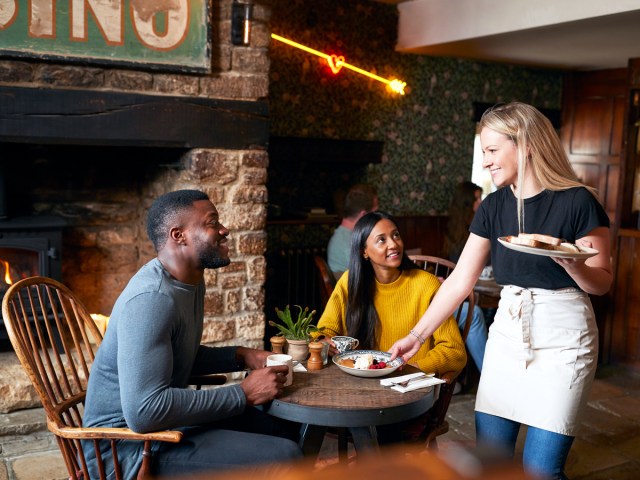
When booking an overnight stay, some hotels offer a “full board” (FB) or “half board” (HB) option. This denotes how many meals you’d like included with your nightly rate. Half board consists of two meals, usually breakfast and dinner. Full board consists of three meals: breakfast, lunch, and dinner. However, snacks, hotel amenities, and drinks (especially alcoholic beverages) are typically not included in full board pricing. For this, you’ll want to look for “all-inclusive” plans. Accommodations that provide breakfast only are aptly called bed-and-breakfasts or B&Bs.
Skiplagging

“Skiplagging” or “hidden city ticketing” is the practice of booking a flight itinerary with a connection but getting off early in the layover city. The intention is not to reach the final destination but to save money by booking this flight instead of the more expensive direct flight. Suppose a flight from Miami to Philadelphia is twice the price of an itinerary from Miami to Chicago with a layover in Philly. Skiplaggers book the latter itinerary, debarking in Philadelphia and never setting foot in Chicago. Travelers should be aware that while skiplagging is not illegal, many major airlines do not allow it, and you can face penalties if you get caught.
Getting Walked
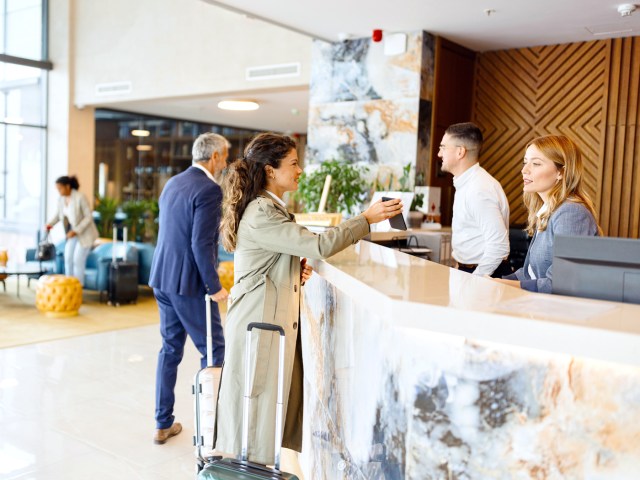
While rare, hotels sometimes turn guests away at check-in, even if they have a reservation. Hotels occasionally overbook due to administrative errors, group events, or faulty third-party booking systems. When this happens to a customer, it’s called being “walked.” Legally, all a hotel has to do is refund prepaid reservations, but some responsible hotels go above and beyond to correct their mistakes. For example, Hyatt’s policy is to provide a free night at a comparable hotel and even offer transportation to and from the property. You might be familiar with a similar term for being taken off a flight: getting “bumped.”
Fam Tours
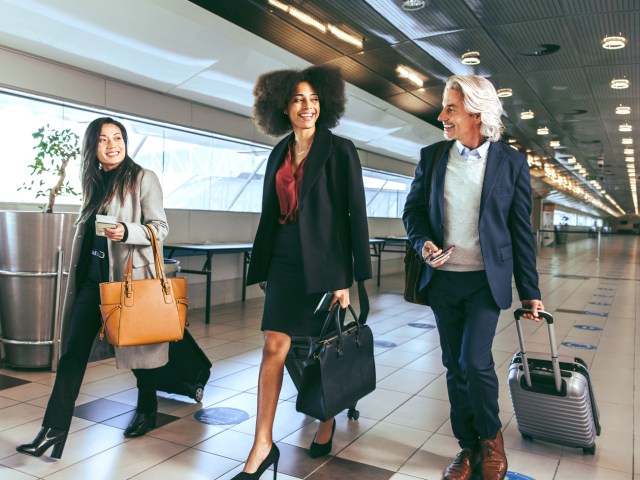
If you see someone in the travel industry embarking on a “fam tour,” they aren’t spending quality time with their family — they’re on a familiarization trip. These tours or trips are provided to industry workers, including travel agents and tour operators, to familiarize them with a particular experience, hotel, or destination. This allows them to promote new experiences to travelers.
Rack Rate

“Rack rate” might sound like you scored a discount, but it’s actually the opposite — it’s the default maximum price for that given date. This is the official price of a hotel stay before any discounts or offers are applied. Nowadays, it’s rare to pay the rack rate given the frequency of specials, holiday deals, and member discounts available for hotel patrons. Whether you book online or over the phone, be sure to search or ask for discounts to avoid paying the rack rate.
Open Jaw
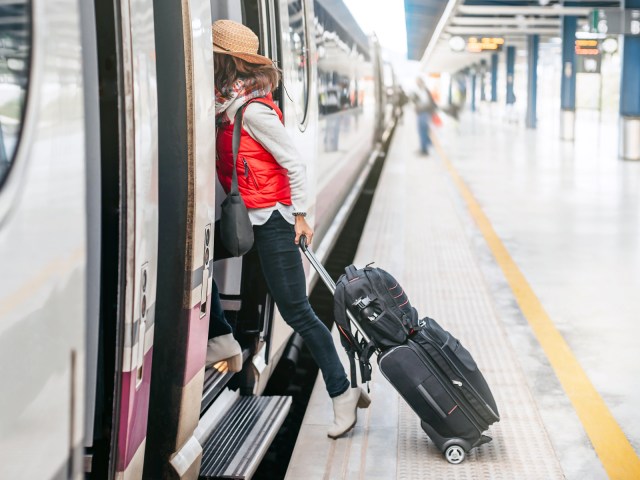
An “open jaw” itinerary involves travelers flying or taking a train to one destination and returning from another. For example, you might fly from Boston to Paris, enjoy some sightseeing throughout Western Europe, and return to Boston from Munich. Some travelers take this a step further with an even more complicated itinerary called a double open jaw. Suppose someone flies from their home airport of Los Angeles to Sydney, Australia, for vacation. After sightseeing, they fly from Melbourne, Australia, to Seattle, Washington, for a business trip instead of heading home. This is known as a double open jaw itinerary, and it’s more common than you think.
Co-Terminal Airports
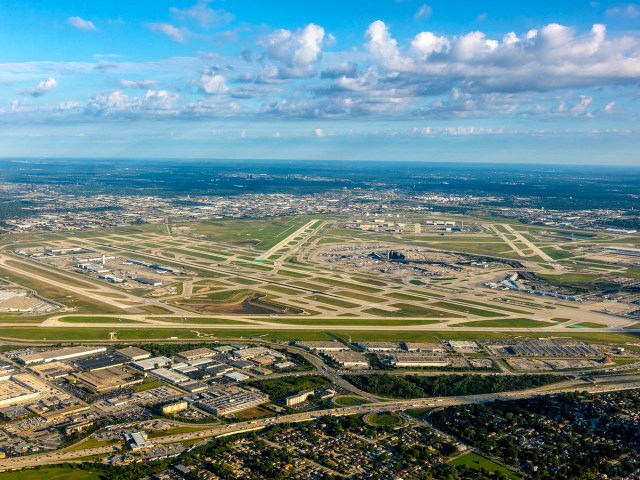
Co-terminal airports have been the downfall of many unknowing travelers, making this an important consideration when booking flights. When a major city is served by more than one major airport, they’re called “co-terminals” — and some are easily confused. For example, Chicago is served by Chicago Midway International Airport (MDW) and Chicago O’Hare International Airport (ORD). These airports are only 30 miles apart. Similarly, New York City’s John F. Kennedy Airport (JFK), LaGuardia Airport (LGA), and Newark Airport (EWR) are co-terminals. To avoid showing up at the wrong place, always double-check the airport you’re booking through.
Shoulder Season

Travel insiders prefer to visit trendy or popular destinations during “shoulder season.” Busy season (typically during school summer vacation) is just that: busy. On the other hand, there’s a reason why the slow season is slow, whether because of inclement weather or limited activities. Shoulder season is the travel season that lies between busy and slow seasons. For example, fall and spring are considered the shoulder season in Italy, when streets are less crowded and temperatures are mild.
Hub and Spoke
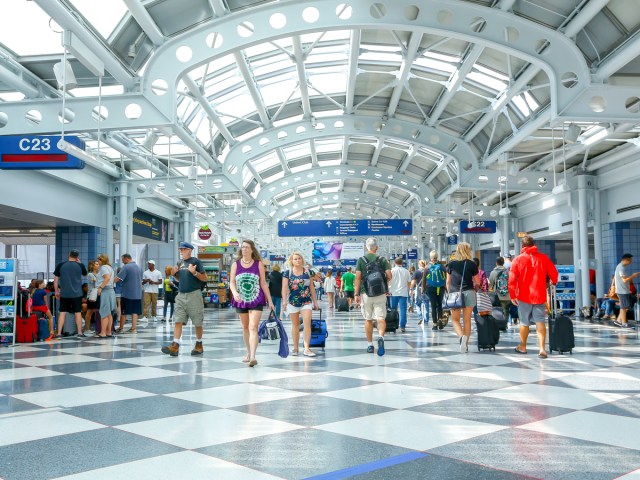
If you hear that an airport is a “hub,” you can expect two things: It has a fantastic selection of flights, and it is very crowded. Traditional “hub-and-spoke” airlines focus their route networks on a few select airports or “hubs,” which offer flights to “spokes.” This allows the airline to offer a greater selection of itineraries by selling connections through hubs. For example, Delta Air Lines has nine hub airports around the U.S., with Atlanta (ATL) as its primary hub (and the largest hub in the country).
Single Supplement

For those new to solo travel, a single supplement surcharge might surprise you. This additional fee is added for travelers not sharing a room in a hotel, on a cruise ship, or during a multiday group tour, because most travel packages are based on double occupancy. With a single supplement, a solo traveler will pay as much as 50% to 100% of the nightly cost or daily fare. Sometimes, there is a discount on the single supplement charge, so solo travelers should shop around to see where the best deal is before booking.
More from our network
Daily Passport is part of Inbox Studio, which publishes content that uplifts, informs, and inspires.
















